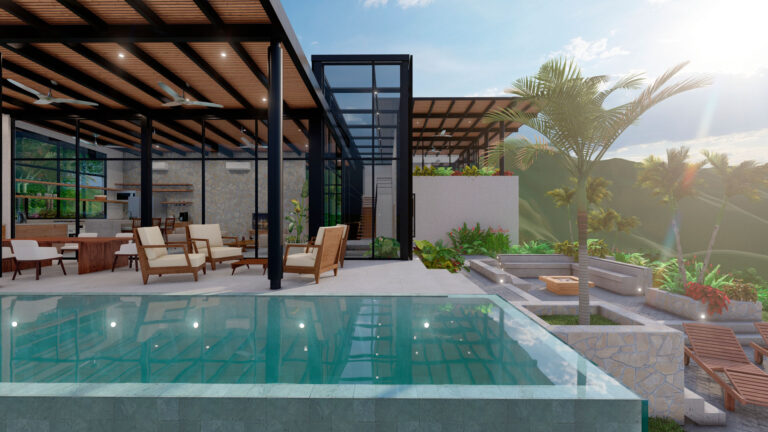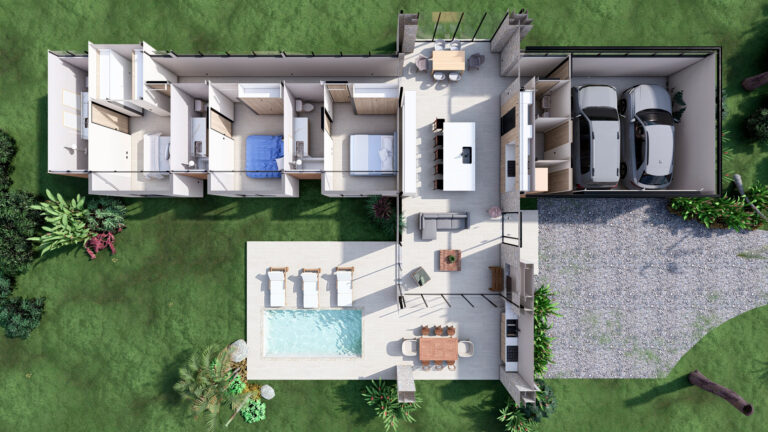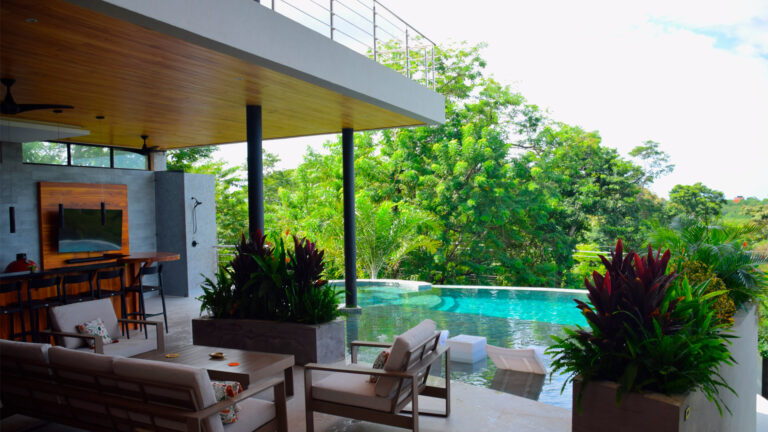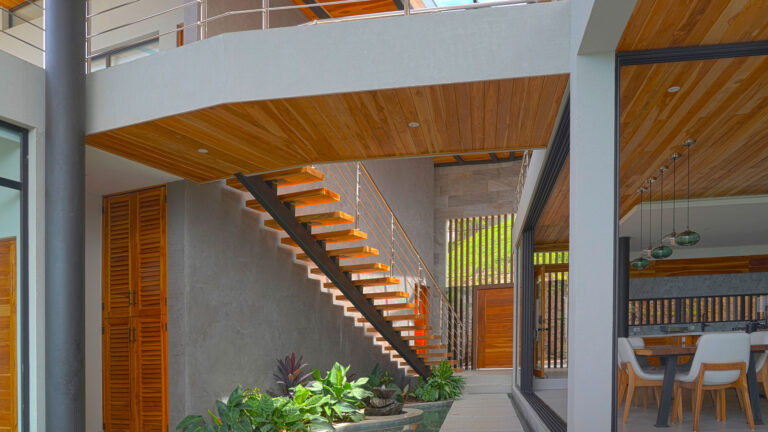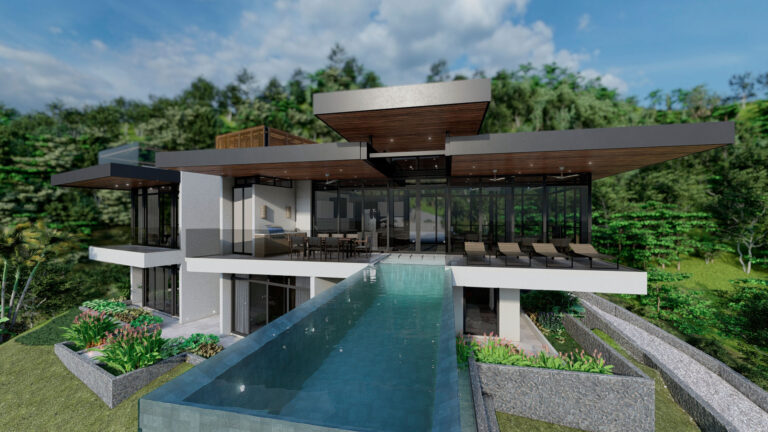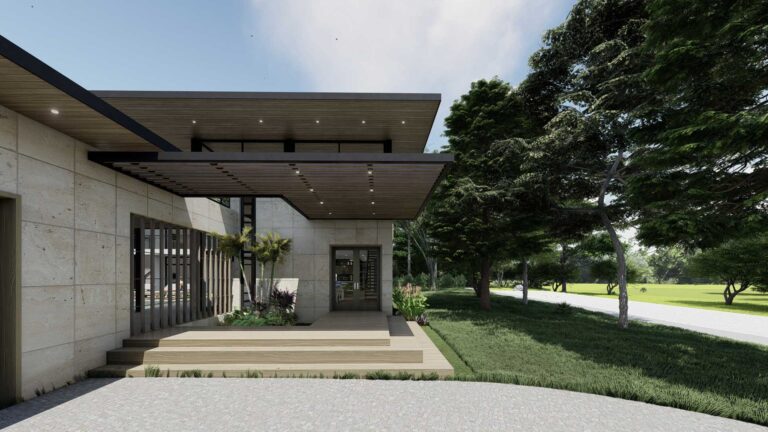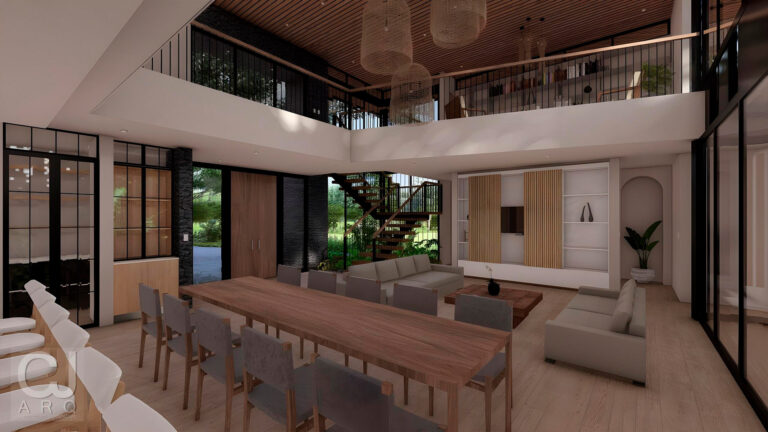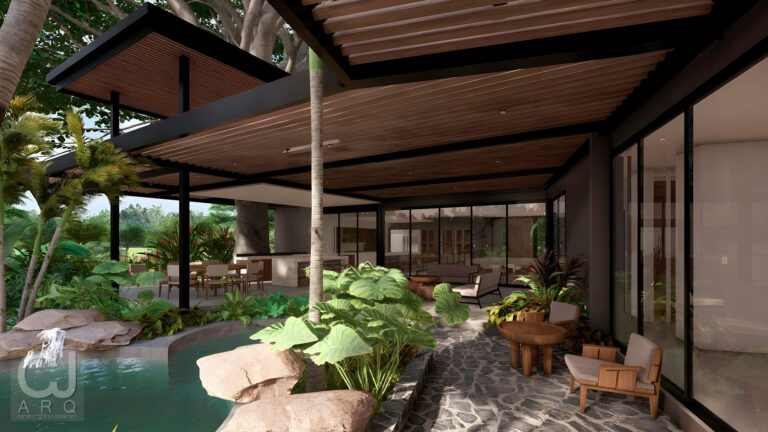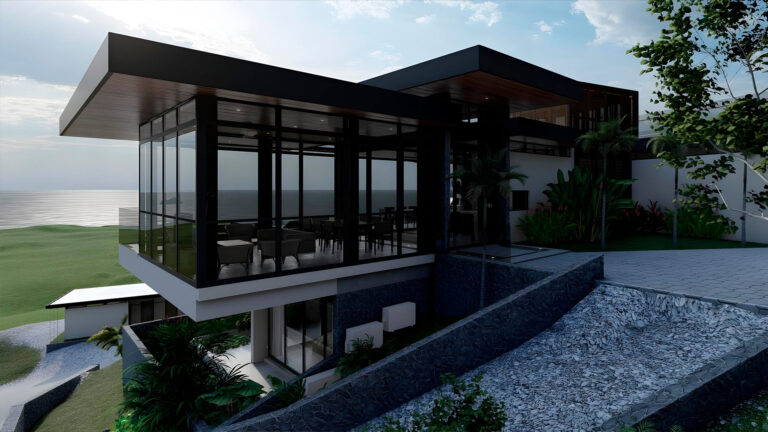Building a home in Costa Rica is a significant investment that requires detailed planning. Construction costs can vary widely depending on factors such as project size, location, materials, and necessary permits. This article provides a breakdown of the main costs involved in building in Costa Rica, so you can make an informed estimate.
1. Cost Per Square Meter
The average construction cost in Costa Rica ranges from $850 to $2,500 USD per square meter. This range depends on design, material quality, and finishes:
- Economic Construction: $850 – $1,200 USD/m², with basic materials and finishes.
- Standard Construction: $1,200 – $1,800 USD/m², with medium-quality materials and better finishes.
- Luxury Construction: $1,800 – $2,500+ USD/m², with high-quality materials and luxury finishes.
It’s important to note that having a complete and detailed design is essential for accurately estimating the cost per square meter. The final value will depend entirely on the design and the information provided in the construction plans for each specialty, such as architecture, structure, and electromechanical systems. Without a detailed design, generalizing the cost per square meter can lead to inaccurate estimates and unwanted surprises during construction. Therefore, ensuring that all details are defined is key to obtaining a realistic cost and avoiding setbacks in project execution.
It’s important to highlight that, unlike in some other countries like the United States, in Costa Rica, the total construction area is not limited to just interior living spaces. Here, the calculation includes all covered surfaces, which also encompasses outdoor areas, pools, garages, and any additional buildings. Therefore, it is crucial to include all these elements when calculating the total cost of the project, as this will significantly impact the final budget.
2. Labor and Social Charges
Labor costs in Costa Rica should represent, at most, 30% of the total construction cost. Social charges, which account for 42% of labor costs, must also be added. It is essential to comply with local labor regulations and ensure that workers are properly insured.
3. Permits, Procedures, and Taxes
Before starting construction, several permits must be obtained, and taxes must be paid, which are calculated on the amount assessed by the CFIA when registering the contract in the APC system. These taxes include:
- Project Registration with CFIA: 0.0256% – 1% of the total project cost.
- Municipal Construction Permit: 1% of the total construction cost.
- Work Risk Insurance (INS): Approximately 3.75% of the total construction cost.
Additionally, you may need special permits, whose costs vary depending on the project’s nature and location, such as:
- Environmental Impact Permit (SETENA)
- Tree Cutting Permit
- Road Alignment (MOPT)
- Fluvial Alignment INVU
It is also necessary to consider initial studies, which range between $850 and $1,500 USD, such as:
- Soil studies: to calculate the necessary foundations.
- Infiltration study: required for project feasibility and approval by the Ministry of Health.
- Slope Stability Analysis: for lands with slopes greater than 30%.
Surveyors and Geotechnical Engineers: These studies can cost between $500 and $2,000 USD, depending on the project’s complexity.
4. Professional Fees
The fees for architects and engineers in Costa Rica are regulated by the CFIA (Federated College of Engineers and Architects). Fees can be divided into two main parts:
- Project Phase: Starting at 5.5% of the total project cost, covering architectural, structural, and electromechanical design, as well as permit procedures.
- Inspection or Work Supervision: Between 3% and 5% of the total project cost, which includes the technical supervision of construction to ensure compliance with plans and specifications.
5. Construction Company Profit
It is common for construction companies in Costa Rica to charge an additional 10% to 20% of the total project cost as profit. This percentage covers project management, team coordination, and quality assurance.
The methods of contracting a construction company typically include:
- Fixed-Price Contract: The total construction cost is established from the beginning, providing budget security. However, any changes or unforeseen events may require an additional adjustment.
- Cost-Plus Contract: The contractor charges a percentage or a fixed fee on direct construction costs. This method is more flexible, allowing adjustments on the fly but requires closer supervision by the client to avoid cost overruns.
- Time and Materials (T&M): In this agreement, the client pays for the work time and materials used, usually with an additional margin. This method is more flexible but can be risky if no clear limit is set on time or total project cost.
Each method has its advantages and disadvantages depending on the nature of the project and the client’s needs. It is important to clearly define the contract terms to avoid misunderstandings during the construction process.
6. Extras and Contingencies
Although a well-detailed budget should avoid unforeseen events, it is advisable to reserve 10% of the budget to cover possible changes or adjustments during construction. This percentage is used for adaptations that may arise during project execution.
Cost Summary for a 300 m² Home
Let’s take, for example, the construction of a 300 m² home with a cost of $1,200 USD per square meter. The calculation would be as follows:
- Construction Cost: 300 m² x $1,200 USD = $360,000 USD
- Labor (30%): $360,000 USD x 30% = $108,000 USD
- Social Charges (42%): $108,000 USD x 42% = $45,360 USD
- Project Registration (CFIA): $360,000 USD x 0.75% (average) = $2,700 USD
- Municipal Construction Permit: $360,000 USD x 1% = $3,600 USD
- Work Risk Insurance (INS): $360,000 USD x 3.75% = $13,500 USD
- Construction Company Profit: $360,000 USD x 10% = $36,000 USD
- Extras and Contingencies (10%): $360,000 USD x 10% = $36,000 USD
- Professional Fees (8-12%): $360,000 USD x 10% (average) = $36,000 USD (includes design and work supervision)
Total Estimated Cost: $360,000 USD (Base cost) + $108,000 USD (Labor) + $45,360 USD (Social charges) + $19,800 USD (Permits and taxes) + $36,000 USD (Profit) + $36,000 USD (Contingencies) + $36,000 USD (Fees) = $641,160 USD.
Conclusion
The cost of building a home in Costa Rica can vary significantly depending on the specific details of the project. With careful planning and a clear understanding of all involved costs, you can ensure that your investment is well-founded.
At CJ Arq, we include a detailed budget with our projects, providing the client with an accurate reference for costs and materials to be used, as well as a method for making a complete comparison of costs and services when comparing quotes for materials or construction companies.
For more information on the construction process, permits, and our architectural design, landscaping, and permit management services, we invite you to visit our services page and check out our blog on construction permits.


